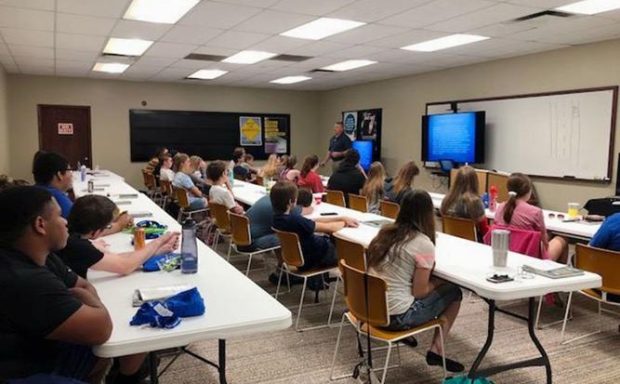High School Driver’s Education: What Does It Entail?
In high school, drivers ed illinois for 16 year olds typically consists of two main components: classroom instruction and behind-the-wheel training.
Classroom Instruction
In the classroom, students learn about traffic laws, road signs, and safe driving practices. They also delve into topics such as alcohol awareness and the dangers of distracted driving.
Behind-the-Wheel Training
The practical aspect of driver’s education involves hands-on experience behind the wheel, guided by an instructor. This allows students to apply theoretical knowledge in real-world driving scenarios.
Benefits of High School Driver’s Education
Establishing a Strong Foundation
driver education Illinois lays the groundwork for responsible and informed driving habits. It instills essential knowledge and skills that form the basis of a lifetime of safe driving.
Understanding Traffic Laws and Regulations
One of the primary objectives of driver’s education is to familiarize students with traffic laws and regulations. This understanding is crucial for navigating roads safely and legally.
Developing Defensive Driving Skills
Through driver’s education, students learn defensive driving techniques, enabling them to anticipate and respond to potential hazards on the road proactively.
The Role of Experience and Maturity
Importance of Practice Hours
While passing a driving test is a milestone, experience is key to becoming a proficient driver. High school driver’s education provides students with supervised practice hours, essential for honing their skills.
Handling Real-Life Situations
Encountering diverse driving conditions under supervision prepares students for real-life situations they may face on the road, fostering confidence and competence.
Safety Implications: Lowering Accident Rates
Statistical Evidence
Studies consistently show that individuals who undergo comprehensive driver’s education are less likely to be involved in accidents, contributing to overall road safety.
Impact on Insurance Rates
Insurance companies often offer lower premiums to drivers who have completed accredited driver’s education programs, reflecting the reduced risk associated with their driving behavior.
Building Responsible Driving Habits
Emphasis on Risk Awareness
Driver’s education emphasizes the importance of risk awareness, encouraging students to recognize potential dangers and make informed decisions while driving.
Encouraging Safe Behavior
By promoting adherence to traffic laws and responsible driving practices, driver’s education helps cultivate a culture of safety on the roads.
Empowering Students for a Lifetime
Life-Long Learning Approach
The lessons learned in driver’s education extend beyond obtaining a license; they equip individuals with the knowledge and skills needed to navigate increasingly complex driving environments throughout their lives.
Adapting to Technological Advancements
As automotive technology continues to evolve, driver’s education must adapt to incorporate new safety features and driving technologies, ensuring that students remain prepared for the road ahead.
Addressing Common Misconceptions
“Just Passing the Test”
While passing the DMV test is a requirement for obtaining a driver’s license, the true value of driver’s education lies in the comprehensive preparation it provides for safe and responsible driving beyond the test.
Long-Term Preparedness vs. Short-Term Solutions
Driver’s education focuses on long-term preparedness, equipping students with the knowledge and skills needed to navigate a lifetime of driving challenges, rather than offering quick-fix solutions.
Conclusion
Reflecting on the Holistic Benefits
High school Driver’s education Course plays a crucial role in shaping responsible and competent drivers. By providing comprehensive instruction and practical experience, it lays the foundation for a lifetime of safe and confident driving.
FAQs
- Why is high school driver’s education necessary when adults can simply get tested at the DMV?
- Does completing driver’s education in high school lead to lower insurance premiums?
- How can high school driver’s education impact road safety?
- Are there any disadvantages to relying solely on DMV testing for driver qualification?
- What are the long-term benefits of comprehensive driver’s education programs?

